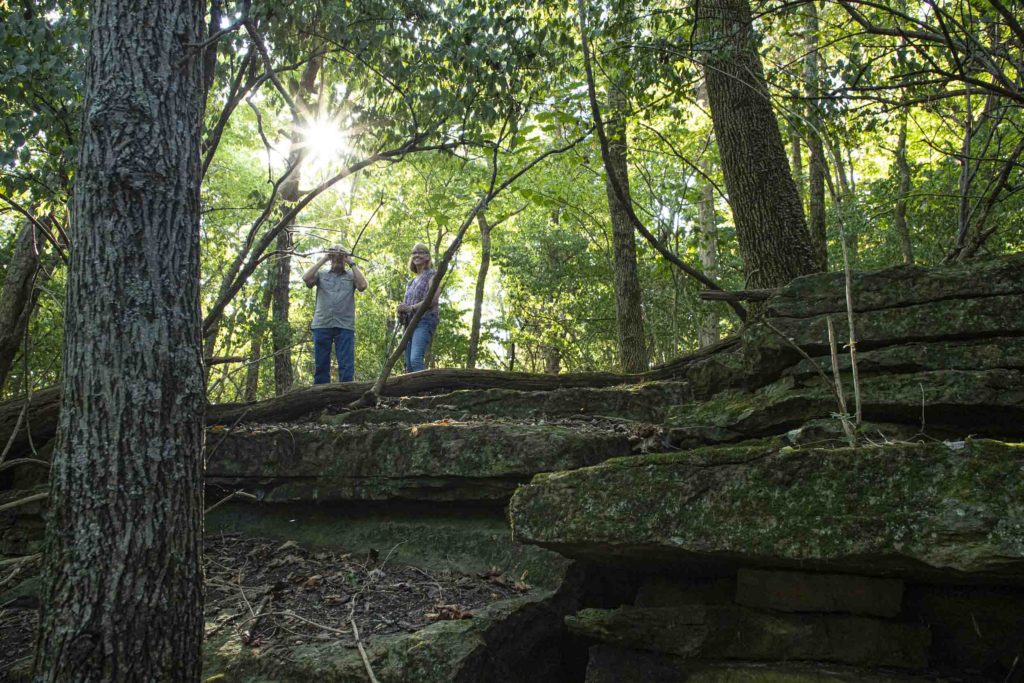Markham Hill is perfect place for new neighborhood
A Northwest Arkansas Democrat-Gazette guest column
Jeremy Hudson, CEO of Specialized Real Estate Group
The population of Northwest Arkansas is growing by 1000 people each month, and the decisions we make today will shape our region long into the future. If we accept the inevitable fact that some new development is necessary in Fayetteville, the next questions are “where?” and “how?” When you judge a place by the standards of what is best for our city and region as a whole — and not by who yells the loudest — Markham Hill is one of the best locations to add new housing in our region. The hilltop has all the hallmarks of a healthy place to live: a central location, access to nature, and active transportation options.
My company, Specialized Real Estate Group, is a Fayetteville-based small business operating only in Washington and Benton Counties. We’ve been recognized nationally for creating developments that are environmentally friendly and that promote health. For the past decade, we have been creating new housing that is healthy for occupants and follows best practices for healthy communities. You might know one of our projects: Eco Modern Flats won national honors for sustainable design including solar water heating, innovative rainwater harvesting, and Fayetteville’s first large-scale apartment recycling program. 200 West Center is home to Arsaga’s at Church and Center. We’ve also created student housing that reduces traffic by putting students closer to classrooms than the campus parking lots. Every unit of housing we have produced has been LEED certified, meaning that a third party has verified it is built by green building standards including superior indoor air quality and energy efficiency.
We’ve just begun infrastructure work on a neighborhood of single family homes on Markham Hill just west of Razorback Stadium, the first phase of a new neighborhood surrounded by forest and meadow, yet within minutes of Fayetteville’s largest employer. People who live in these new homes will have both nature and community within reach, and a network of active transportation options — all the ingredients for a healthy and connected life with a light footprint on the environment. Situating these homes in compact clusters allows us to set aside fully half the land as nature preserve and open space. We believe strongly that our property on Markham Hill is a perfect place for a new neighborhood. Not everyone agrees.

“Successful development of this new neighborhood will permanently fund careful management and restoration of more than 50 acres of nature preserve, land that has been neglected and threatened by invasive plants, illegal camping, dumping, and fires.”
Our development plan is not only for the benefit of the people who will live here; we all benefit. The hundreds of homes in this new neighborhood will not be built on disappearing farmland in Elkins or Prairie Grove. The people who live here will spend less time in cars, and will not contribute to snarls of traffic commuting to Fayetteville, nor the pollution generated by long commutes. Successful development of this new neighborhood will permanently fund careful management and restoration of more than 50 acres of nature preserve, land that has been neglected and threatened by invasive plants, illegal camping, dumping, and fires.
Hillsides, rock outcroppings, springs, and mature forest — those areas considered highest priority by the Northwest Arkansas Open Space Plan — will be permanently preserved under a conservation easement with the Northwest Arkansas Land Trust. We also plan to preserve the historic meadow on the hilltop as open space shared by the neighborhood, micro-scale agriculture, and community events like Fayetteville Roots Festival.
Development has become a dirty word, and we realize we have a lot to do to rise above it. At the same time, everyone is a consumer of real estate development, from the homes we live in to the grocery stores we shop in. When faced with the need for new housing, the response is often, “Let them build somewhere else.” The problem with “somewhere else” is that it doesn’t exist. Every place has its own ecology and history, and we should learn from other communities the environmental, economic, and public health costs of urban sprawl.
We hold a deep respect for the history and ecology of Markham Hill. The land has been vineyard, farmland, a summer camp for wealthy families, and an off-the-grid home for hippies. None of those uses is sustainable today, but nothing that is built on Markham Hill will erase those memories. The Pratt family home, a modest Ozark farmhouse, has disappeared under an opulent renovation, and the once lively hilltop has been hushed, closed to all but a few. Our plan brings new life to the hilltop while preserving the things that make it special.
We invite readers to see for themselves — be our guests in the nature preserve on a new trail designed in consultation with an ecologist to have a light footprint on the land. As the trail is on private property, we ask users to register at markhamhill.com before heading out. Find the trailhead at the northern edge of the Pratt Place Inn parking lot. You’ll see giant mossy boulders and towering white oaks in a large nature preserve that will be protected and shared with the community long after all of us are gone.

